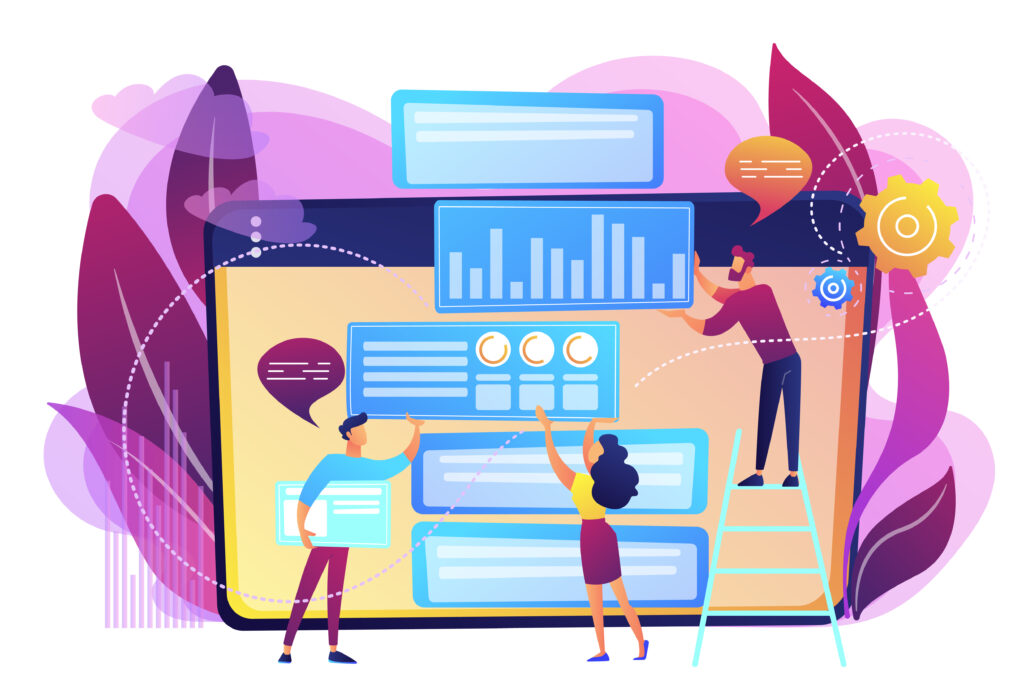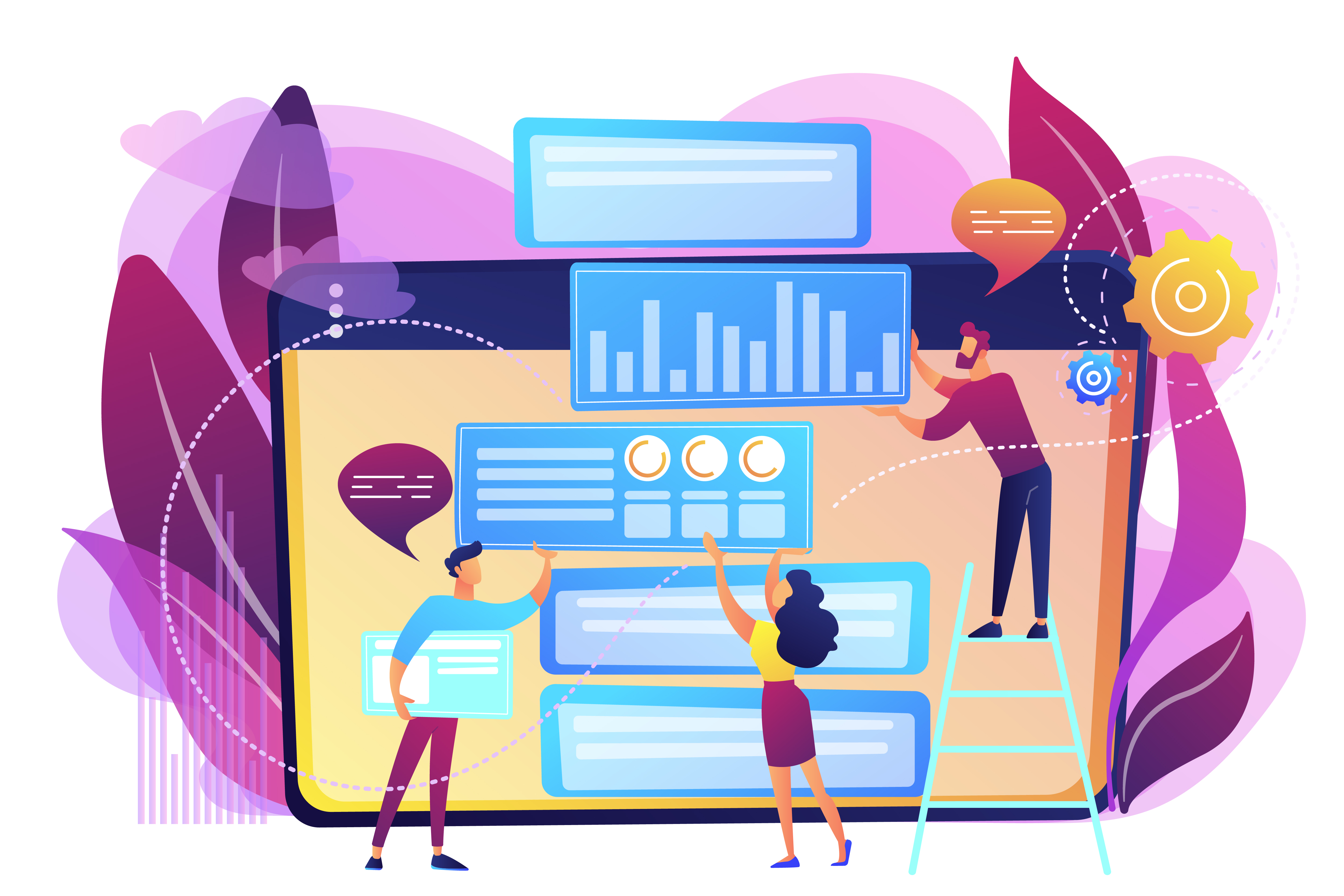In today’s fast-paced business world, data is king. As businesses collect more and more data, the challenge is how to harness that data to make better decisions. This is where ERP (Enterprise Resource Planning) and Business Intelligence (BI) come in. By integrating ERP and BI, businesses can better manage their resources and turn data into insights that can drive business success.

ERP is a suite of software applications that help businesses manage their resources, such as finances, supply chain, inventory, and customer relationships. ERP systems allow businesses to integrate their various business processes and streamline operations. BI, on the other hand, is a set of tools and techniques that allow businesses to collect, analyze, and report on their data to gain insights that can drive decision-making.
By integrating ERP and BI, businesses can turn their data into actionable insights. ERP systems provide a wealth of data about a business’s operations, but without BI tools to analyze that data, it can be overwhelming and difficult to make sense of. BI tools can help businesses identify patterns and trends in their data that can inform decision-making.
For example, let’s say a retail business wants to understand which products are selling the most and where they are being sold. By integrating ERP and BI, the business can collect data on sales transactions and inventory levels from its ERP system and use BI tools to analyze that data. The BI tools might reveal that a particular product is selling well in a certain region, but is not being stocked in other regions. Armed with this insight, the business can adjust its inventory levels and marketing efforts to maximize sales of that product.
Another example is a manufacturing business that wants to optimize its supply chain. By integrating ERP and BI, the business can collect data on its production processes, inventory levels, and supplier performance from its ERP system and use BI tools to analyze that data. The BI tools might reveal that a particular supplier is consistently late in delivering materials, causing delays in production. Armed with this insight, the business can work with the supplier to improve delivery times or find a new supplier altogether.
ERP and BI integration can also help businesses improve their financial management. By collecting data on expenses and revenue from its ERP system and using BI tools to analyze that data, a business can gain insights into its profitability and cash flow. The BI tools might reveal that certain products or services are more profitable than others, or that certain expenses are higher than expected. Armed with this insight, the business can adjust its pricing or expense management strategies to improve profitability.
One of the key benefits of ERP and BI integration is that it can help businesses make decisions more quickly and accurately. In today’s fast-paced business world, time is of the essence, and businesses need to be able to make decisions quickly. By providing real-time data and insights, ERP and BI integration can help businesses make informed decisions faster. This can be especially valuable in industries with rapidly changing market conditions, where businesses need to be able to adapt quickly to stay competitive.
Another benefit of ERP and BI integration is that it can help businesses identify opportunities for growth. By analyzing data on customer behavior, market trends, and competitor performance, businesses can identify new markets, products, or services to pursue. The BI tools might reveal that there is a growing demand for a particular product or service, or that there is an untapped market in a certain region. Armed with this insight, the business can adjust its strategies to capitalize on these opportunities.
Despite the many benefits of ERP and BI integration, there are also challenges to be aware of. One of the biggest challenges is data quality. ERP systems rely on accurate and up-to-date data to provide value, but data quality can be difficult to maintain. BI tools also rely on accurate data to provide accurate insights, so businesses need to be vigilant about data quality issues.
Another challenge is user adoption. ERP and BI systems can be complex and require specialized skills to use effectively. Businesses need to ensure that their employees have the training and support they need to use these systems effectively. Without adequate training and support, employees may be hesitant to use the systems or may not be using them to their full potential.
Finally, integrating ERP and BI systems can be expensive and time-consuming. Businesses need to weigh the costs and benefits carefully before embarking on an integration project. They also need to ensure that their systems are compatible and that they have the resources and expertise to implement the integration successfully.
In conclusion, ERP and BI integration can provide businesses with valuable insights into their operations, customers, and markets. By turning data into actionable insights, businesses can make better decisions, improve their financial management, and identify opportunities for growth. However, businesses need to be aware of the challenges of data quality, user adoption, and cost before embarking on an integration project. With careful planning and execution, businesses can harness the power of ERP and BI to drive business success.
Simply CRM is a cloud-based customer relationship management (CRM) software that can be used as an enterprise resource planning (ERP) solution. Simply CRM is designed to help businesses manage their entire business processes, including sales, marketing, customer service, inventory management, and more.
Here are some of the ways Simply CRM can be used as an ERP:
Sales Management:
Simply CRM provides a comprehensive sales management module that helps
businesses manage their entire sales process, from lead generation to
closing deals. The sales module includes features such as lead tracking,
sales forecasting, sales pipeline management, and sales analytics,
which can help businesses streamline their sales processes.
Marketing Automation:
Simply CRM offers powerful marketing automation features that enable
businesses to create and execute targeted marketing campaigns across
multiple channels. The marketing module includes features such as email
marketing, social media marketing, and campaign tracking, which can help
businesses automate their marketing processes and drive more leads and
sales.
Customer Service:
Simply CRM includes a customer service module that enables businesses to
manage customer inquiries, complaints, and support requests. The
customer service module includes features such as ticket management,
knowledge base management, and customer feedback, which can help
businesses provide excellent customer support and improve customer
satisfaction.
Inventory Management:
Simply CRM also includes an inventory management module that enables
businesses to manage their inventory levels and track their stock
movements. The inventory management module includes features such as
stock alerts, reorder management, and purchase order management, which
can help businesses optimize their inventory levels and reduce the risk
of stockouts.
Reporting and Analytics:
Simply CRM includes powerful reporting and analytics capabilities that
enable businesses to track their performance across all their business
processes. The reporting and analytics module includes features such as
custom dashboards, data visualization, and real-time reporting, which
can help businesses make data-driven decisions and improve their overall
performance.
Overall, Simply CRM is a powerful ERP solution that can help businesses manage their entire business processes, from sales and marketing to customer service and inventory management. Its cloud-based platform, intuitive user interface, and robust feature set make it an ideal choice for businesses of all sizes looking to streamline their operations and improve their bottom line.
Additional reading about ERP:
- What Is ERP (Enterprise Resource Planning)?
- How ERP Software Impacts Quality
- What Is ERP Software—How Does It Work & Why Use One?




